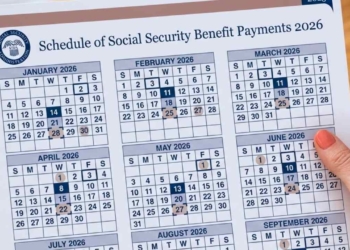In 2025, there are three main groups of Americans who qualify for SSI (Supplemental Security Income). The three of them share features from a financial point of view. One of the three groups that qualify for this Federal benefit is people who are at least 65 years old. That is, 65 years old and older. Usually, they also collect retirement benefits.
Apart from seniors aged 65, you could be receiving SSI payments if you have a qualifying disability. Of course, this medical condition must meet the strict definition that the Social Security Administration has given. Some people may have a disability, but it is not a qualifying one. Another group that may also be eligible for Supplemental Security Income is people who are blind.
3 Eligible groups and other requirements to get SSI
People with a disability, people who are blind, or people aged 65+ should check their eligibility. Basically, they must have limited income to be able to receive monthly payments.
However, having a low income is not enough. As a matter of fact, they must also have limited resources. That implies they do not earn much money, and they do not have enough savings.
Obviously, it will be easier to qualify for the maximum SSI benefit amount if you have no earnings and no resources at all. Apart from this earnings and resources test, there are other conditions. For example, citizenship requirements and other conditions may apply.
How much money can SSI recipients get?
The maximum benefit an eligible married couple can collect from Supplemental Security Income is $1,450. If you are not married, your monthly payment could be up to $967.
Apart from individuals and married couples, the Social Security Administration has confirmed that an essential person can receive up to $484. That is the maximum amount for these people. For your information, the next payday will take place on May 30 (payment for June).
Summing up, there are three different groups of recipients and 3 different maximum amounts:
- seniors 65+
- blind people
- people with disabilities
- individuals: up to $967 ($717 on average)
- married couples up to $1,450
- an essential person: up to $484







